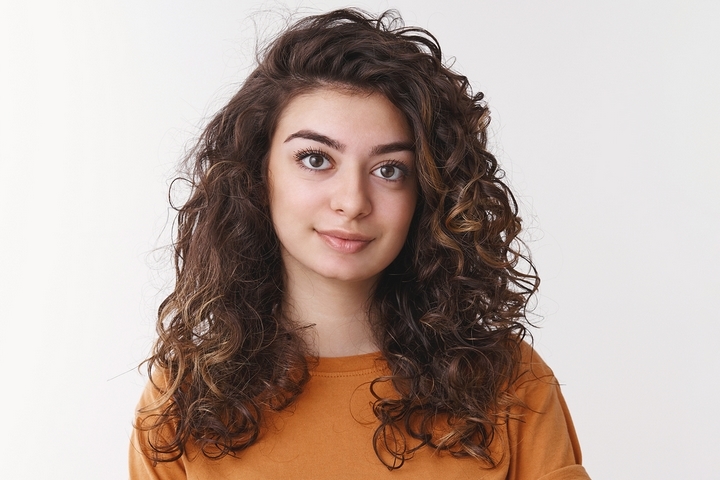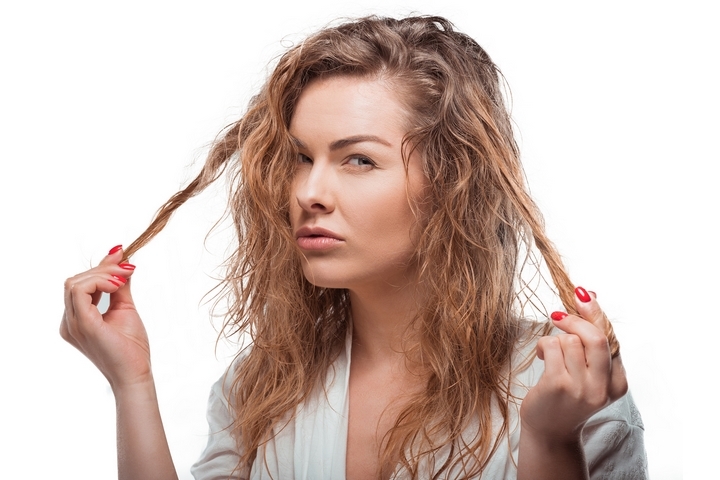Hair is like personality: there are so many different kinds, and not one singular person will have the same one as anybody else. In this way, we are all unique. Similarly, it can make it frustrating to understand our hair as nobody will ever have the same issues with it. There are many reasons why someone’s hair might go from straight to curly. Some people are born with naturally curly hair, while others have straight hair that becomes curly over time.
We are here to discuss why your hair could have gone from straight to curly to help you better understand yourself! Suppose you are experiencing a sudden change in your hair texture. In that case, it is always a good idea to consult a professional hair salon like Tony Shamas to rule out any underlying medical conditions or other potential causes. However, in many cases, a change in hair texture is simply a natural part of the aging process or a response to environmental factors— nothing to worry about.
Whatever the cause, there are many ways to embrace and care for curly hair, from using specialized products to adopting a new hair care routine that considers curly hair’s unique needs. Read on to find out why and how you can address them!
Hormonal changes

One reason hair goes from straight to curly that is often overlooked is biology: hormonal changes. During puberty, for instance, many people experience hormonal changes that can affect the shape of their hair follicles. The hormones produced during puberty can cause hair follicles to become more oval-shaped, resulting in hair that is more likely to curl: the situation you have at hand.
Similarly, changes in hormones during menopause can also impact the texture of your hair. As estrogen levels decline, hair follicles may shrink, making hair thinner, brittle, and more prone to curling. In some cases, hormonal changes may cause hair to change texture multiple times throughout a person’s life.
While hormonal changes can be a natural part of the aging process, they can also be influenced by external factors such as stress, diet, and exercise!
Genetic factors

Next up on the list of biological reasons your hair can become curly is genetic factors! If your family members have curly hair, you may be more likely to develop curly hair, even if it is a bit later. This is because many genes can influence the texture of your hair, including those that control the shape of hair follicles and the proteins that make up the lush mane on your head.
While genetics can not be changed, there are many ways to care for curly hair, from using specialized products to adopting a new hair care routine that considers curly hair’s unique needs.
Heat damage

We all heard it growing up: protect your hair from heat! And yes, this may be one of the reasons why your hair is curling instead of growing straight. Regular use of heat styling tools, such as straighteners or curling irons, can break down the protein bonds in hair, changing its texture over time and resulting in the change that brought you here.
When hair is exposed to high levels of heat, the keratin proteins that make up the hair shaft can become damaged or weakened, which can cause the hair to curl or become frizzy.
To avoid heat damage, it is critical that you use heat styling tools in moderation and always use a heat protectant spray if you must apply heat. Additionally, using low-heat or no-heat styling methods, such as air-drying or braiding wet hair, can help to prevent damage and promote healthy hair growth.
Environmental factors

Biology may not be the only reason why your hair is curling! Humidity, for example, can cause hair to become frizzy and curly. Similarly, weather changes can also impact the texture of your hair. Take colder temperatures, for instance, where your hair may become drier and more prone to breakage, while in hot and humid temperatures, hair may become more prone to frizzing and curling.
To minimize the impact of environmental factors on your hair, choose hair care products formulated to address your specific hair concerns, making sure your products work for you! Additionally, wearing protective hairstyles, such as braids or updos, can help to shield your hair from the elements.
A medical condition

If you have recently had a major health diagnosis or are experiencing a change in your health status, your hair may also change. Some autoimmune disorders, for instance, can cause hair to become curly or wiry.
Moreover, certain medications or treatments, such as chemotherapy, can cause hair to change texture. If you are experiencing a sudden change in your hair texture, we advise you to consult a medical professional to rule out any underlying conditions.
In some cases, treating the underlying condition may help to restore your hair to its previous texture. In other cases, you may need to change your hair care routine or adopt new styling techniques to help manage your new hair texture.



